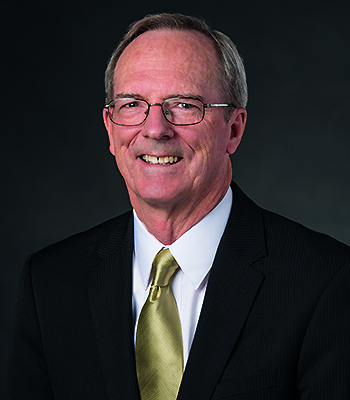Elder Tad R. Callister Shares Why Latter-day Saints Can Have Faith in Modern-Day Prophets
Contributed By Elder Tad R. Callister, emeritus General Authority Seventy and former Sunday School General President

The First Presidency and the Quorum of the Twelve Apostles gather for a photo in front of the Christus statue and statues of the original Apostles in the Rome Italy Temple Visitors’ Center on March 11, 2019. Photo by Jeffrey D. Allred, Deseret News.
Article Highlights
- We can trust the prophet’s counsel when we come to know that the Church’s doctrinal teachings are true.
- Don’t lose faith in the many things you do know because of the few things you don’t know.
“Once we have crossed the line of doubt and come to know that the doctrinal teachings of the Church are true, . . . we can accept them as the will of God and move forward in a positive, constructive way.” —Elder Tad R. Callister
Related Links
While serving on assignment in the Pacific, a mission president contacted me about meeting with a missionary who wanted to go home early. Evidently, the missionary had read some anti-Church literature and felt he no longer had a sufficient testimony to teach the gospel. I met with the missionary and asked if I might ask him a few questions. He consented. The questioning went essentially as follows:

Elder Tad R. Callister.
- Do you believe in the premortal existence—that we lived with God as His children before we came to this earth? He replied that such doctrine was taught in the Bible and he believed it.
- Do you believe in the doctrine of the spirit world—that everyone will have a fair chance to hear the gospel in its fullness either on earth or in the spirit world before they are judged? He said that that seemed fair and right to him.
- Do you believe, then, in baptism for the dead? “Yes,” he replied. “That is in the Bible.”
- Contrary to the doctrine of the Trinity as taught by most of the Christian world, do you believe that God the Father and His Son, Jesus Christ, are two separate personages with glorified bodies of flesh and bones? He replied in the affirmative.
- Do you believe in one heaven and one hell as taught by most of the Christian world, or do you believe in three degrees of glory? He replied, “Three degrees of glory.”
- Do you believe in the eternal nature of families? He said he had always believed in such a doctrine.
- Do you believe that Christ’s Church today should have Apostles just as existed in Christ’s mortal ministry? He replied that that seemed right to him.
- Do you believe in ongoing revelation today or believe that it ceased at the time the Bible ended and thereafter God left us on our own? “No,” he said. “I believe we should have revelation today.”
In all, about 10 to 12 questions were discussed. I then asked this fine young missionary, “Can you think of any church that teaches one, let alone all, of these doctrinal principles?”
I will never forget his response: “I hadn’t thought of that before.”
In truth, this Church ruins any other church for its members, because, like this missionary, they know too much. If people leave this Church, they will usually end up traveling down one of two paths—either they will become a church unto themselves (because they will never find another church that has more truth than they already have), or they will head down the road of agnosticism. Recognizing this, I asked the missionary, “Are you willing to give up all this doctrine you know to be true, to throw it all away, because you have a few questions you can’t answer.”
It reminds one of the observation, “Don’t lose faith in the many things you know because of a few things you don’t know.”
Someone can’t very well embrace the doctrine of the Church on one hand and then reject the prophets and scriptures through which it came on the other any more than someone can claim that good fruit comes from a bad tree. If the fruit is good, the Savior taught, the tree is good. Accordingly, if the doctrine is true, then the prophets through whom it came are true.
Once we have crossed the line of doubt and come to know that the doctrinal teachings of the Church are true, then we don’t have to agonize over and dissect every statement of the prophets. We don’t have to weigh them against our finite standards of justice or our limited understanding of eternity—instead we can accept them as the will of God and move forward in a positive, constructive way. The profound doctrinal teachings of the Church are a powerful witness that our prophets are inspired and, thus, we can trust their counsel.
